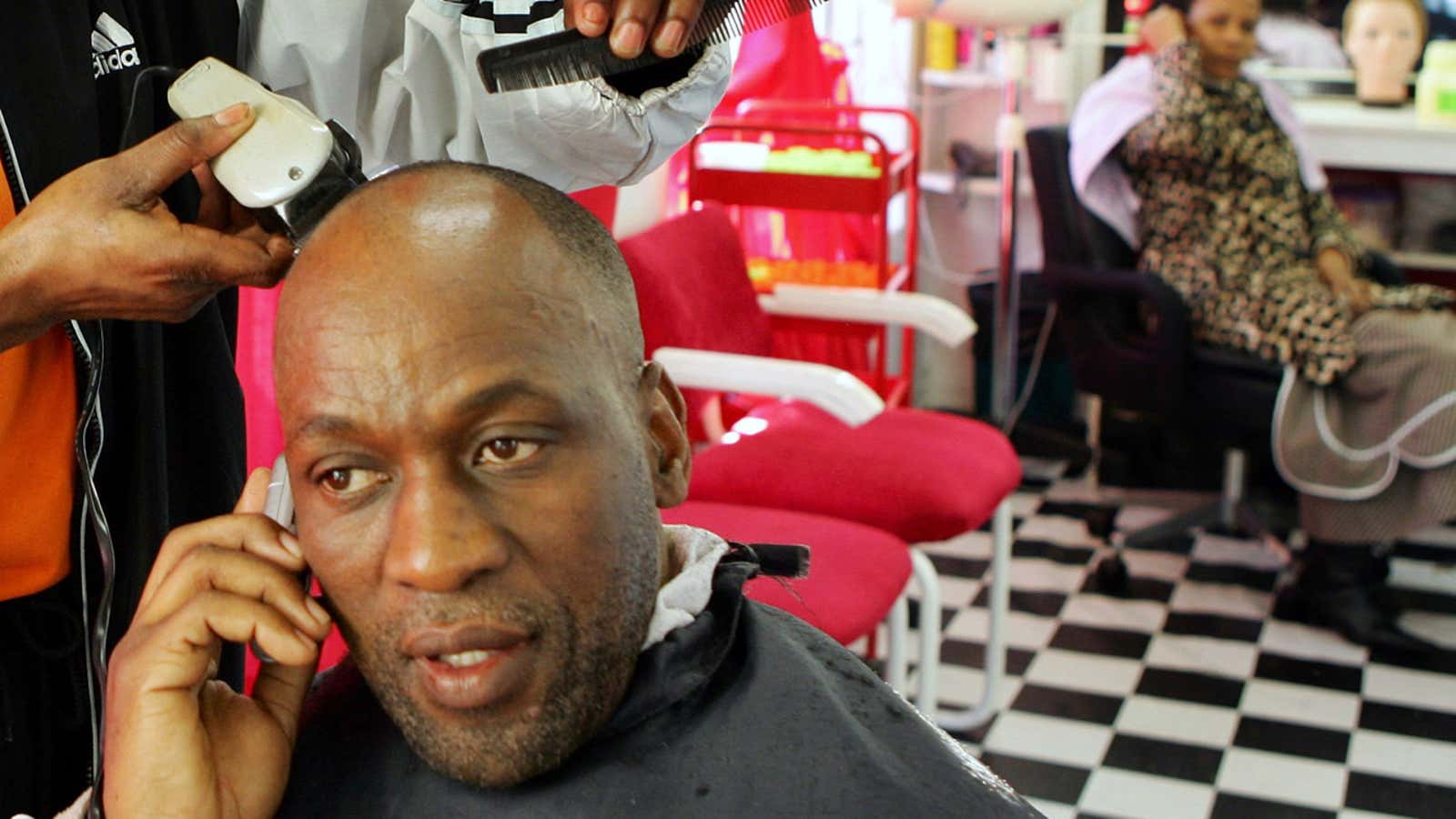South Africa may have some of the world’s cheapest cities to live in, but using the internet in Cape Town and Johannesburg is surprisingly expensive by global standards.
South Africans living in the country’s two major cities spend more on their monthly internet costs than people living in New York, Tokyo, and even the perennially expensive Zurich, according to a report by Deutsche Bank. When comparing life in the global financial capitals, most other things, from rent to the cost of a cappuccino, were far cheaper in Johannesburg and Cape Town, making the cost of getting online even more of a shock to the pocket.
Out of 50 cities surveyed, Joburgers spent the second most on monthly internet, beaten only by oil-rich Dubai. The amount shelled out by Capetonians ranked seventh behind Dublin, San Francisco, and Auckland and Wellington in New Zealand, according to the report, which compared daily prices and living standards of cities around the world.
Based on a connection of 8mpbs per second, the report also showed that Cape Town’s residents shelled out the highest share of their disposable income getting online, while Johannesburg came in second in a sample of 50 cities.
Monthly salaries in Johannesburg and Cape Town averaged around $1,663 and $1,247, about 30% and 40% of the average New York salary. The sample also showed a steady decrease in salaries (after tax) from 2014 in both cities, as the cost of internet increased in Johannesburg and remained steady in Cape Town.
South Africans already know that they have some of the highest data costs of developing countries. Compared to the BRICS countries—a diplomatic and economic partnership between Brazil, Russia, India, China and, South Africa—South Africans spend about as much as Brazil, but more than double what Indians and Russians pay for data bundles of 5GB, 1GB, and 500MB.
South Africa has ambitions (pdf) to provide internet access for all its citizens by 2030. But prohibitively expensive internet usage is likely to delay this goal, as well as its hopes of building a digital economy (pdf).
Most South Africans access the internet through their mobile phones, where private companies like Vodacom and MTN control pricing irrespective of the public agenda. Last year, the country participated in a #BlackOutWednesday protest, pledging to stay off the internet for a day to draw attention to high prices. The action prompted the government to promise to look into the prices, but didn’t lead to any immediate relief.
Since then, the Independent Communications Authority of South Africa has introduced regulations that would prevent telecoms companies from charging high rates once bundle packages were depleted. They also ruled that operators should allow users to share data with others, envisaging a scenario in which a breadwinner might be able to send data to other members of the household.
These new measures might have some impact, but not if costs keep rising to begin with. In March, an increase in value added tax saw the country’s prepaid call and data rates rise, once again.
Quartz reporter Dan Kopf contributed to this report.
